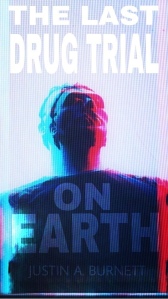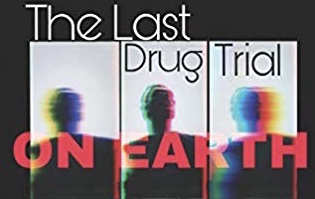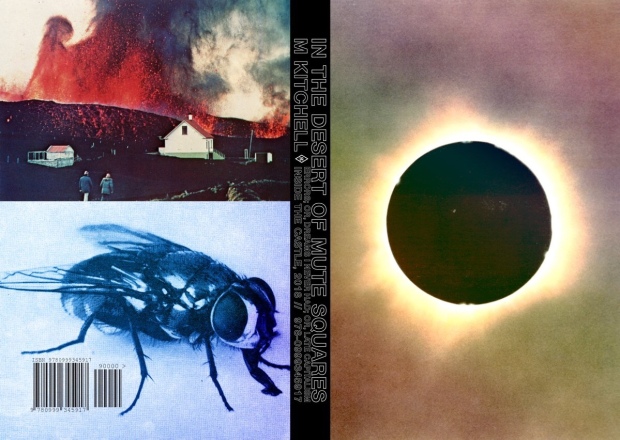by
Daulton Dickey.
This is by no means meant as a definitive list. Thousands of great artists and celebrities have produced thousands of great memoirs—or autobiography, whichever word we prefer these days—over the years. This list doesn’t even include some of my favorite memoirs, but, for brevity’s sake, I wanted to focus on the six that come to mind whenever anyone asks if I have a favorite memoir.
Groucho and Me
Groucho Marx
Bernard Geis Associates, 1959
 While his humor might feel dated, Groucho remains a true original. From his voice to his puns to his eye-rolling delivery—literally, the man punctuated gags and puns, usually jokes he knew were bad, by rolling his eyes or glancing upward—he’s spawned countless imitators, most notably Bug Bunny.
While his humor might feel dated, Groucho remains a true original. From his voice to his puns to his eye-rolling delivery—literally, the man punctuated gags and puns, usually jokes he knew were bad, by rolling his eyes or glancing upward—he’s spawned countless imitators, most notably Bug Bunny.
He started comedy on the Vaudeville Circuit as a teenager. In the early twentieth century, theaters around the country offered variety shows featuring various performers: comedians, jugglers, singers, dancers, burlesque performers. Filled with puns and innuendo, vaudeville gags helped lay the groundwork for early cinematic comedies. Many of the biggest stars in the early days of film, in fact, started in Vaudeville, including Charlie Chaplin and, of course, Groucho Marx.
Groucho attained worldwide fame as the centerpiece of the Marx Brothers. He not only inspired generations of comedians—he also inspired counterculture movements, especially the movements of the 60s. Groucho—and the Marx Brothers—were fiercely anti-establishment. They challenged authority, the notion of government—democratic or fascist—and lampooned higher education. They also attacked the human condition, satirizing the wealthy, the poor, the credulous, those seeking fame and those running from it. Few targets escaped the brothers’ sights.
As a personality—both on and off the screen—Groucho was a prankster and a showboat, arrogant and miserly. He simultaneously sought and thwarted attention. In most cases, it’s better to view a celebrity’s autobiography as a sustained PR effort. Even in their worst moments, they later spin the story to minimize their appearance or effects on situations or people.
Groucho’s penchant for telling autobiographical stories and anecdotes in different ways to different people often makes it difficult to tell truth from fiction or to assess the veracity of his claims. It’s better to approach this is a book of dubious truths. Don’t let that discourage you, however.
Having little formal education, Groucho in later years aspired to become a writer. He devoured books and befriended some of the biggest modernists of the twentieth centuries—his letters to TS Eliot are great. He took writing seriously, and it shows. His prose is fluid, conversational, and never stuffy. Much of the book reads as if your funny uncle is relaying personal anecdotes. Although many allusions and jokes are dated, this books is still well worth checking out.
The Long Hard Road Out of Hell
Marilyn Manson with Neil Strauss
ReganBooks, 1998
 If you somehow don’t know who Marilyn Manson is, he’s a holy fuck read that first chapter nothing I could write can or will do this book justice so just read that first chapter fuck me what an insane and disturbing chapter Christ it will haunt you just read it already
If you somehow don’t know who Marilyn Manson is, he’s a holy fuck read that first chapter nothing I could write can or will do this book justice so just read that first chapter fuck me what an insane and disturbing chapter Christ it will haunt you just read it already
(more…)





 Possession is a strange concept. Like many of the categorizations we use to piece together what roughly might be called our social existence, possession is marked more by its ambiguities than its certainties. What do we possess? We possess our possessions. But what are those? Merely material things that cost money, that stand at one end of a transaction like the period at the end of a sentence? A mere placeholder for exchange, a trophy for participation in capitalist society, a pause after a civic duty duly discharged?
Possession is a strange concept. Like many of the categorizations we use to piece together what roughly might be called our social existence, possession is marked more by its ambiguities than its certainties. What do we possess? We possess our possessions. But what are those? Merely material things that cost money, that stand at one end of a transaction like the period at the end of a sentence? A mere placeholder for exchange, a trophy for participation in capitalist society, a pause after a civic duty duly discharged?
 Discussing horror as a literary genre proves to be an exceedingly difficult undertaking. A reader familiar with contemporary horror writers will undoubtedly protest against this statement, citing the fact that horror writers are generally more than happy to discuss their stock tricks, ways of thinking, and sources of inspiration. True enough. Contemporary horror writers are a gregarious crew. Yet when it comes to horror itself, our paradoxically macabre attraction to the dark and inhuman realms of terror, everything remains infuriatingly inexplicable. This paradox—our attraction to the repulsive as embodied in horror fiction—is dubbed famously in critical aesthetics ‘the paradox of horror’. I will utilize as a demonstration the appeal of Philip Fracassi’s recently published ‘Lovecraftian’ horror novella, Altar. The book itself is quite typical of its generic milieu, given how Lovecraftian horror is racing to the fore of contemporary horror fiction with the encouragement of affluent writers like Ramsey Campbell and Thomas Ligotti (or more recently, Cody Goodfellow and Jeremy Robert Johnson). One advantage of Altar’s utilization as a demonstrative model for horror fiction is that its simplicity and quintessentially Lovecraftian plot vastly complicates many of the theories offered up in supplication to the paradox of horror. It is my intention to challenge several theoretical ‘suggestions’ regarding the paradox by emphasizing the hitherto overlooked experiential “gap” in horror and the corresponding encounter with the Other.
Discussing horror as a literary genre proves to be an exceedingly difficult undertaking. A reader familiar with contemporary horror writers will undoubtedly protest against this statement, citing the fact that horror writers are generally more than happy to discuss their stock tricks, ways of thinking, and sources of inspiration. True enough. Contemporary horror writers are a gregarious crew. Yet when it comes to horror itself, our paradoxically macabre attraction to the dark and inhuman realms of terror, everything remains infuriatingly inexplicable. This paradox—our attraction to the repulsive as embodied in horror fiction—is dubbed famously in critical aesthetics ‘the paradox of horror’. I will utilize as a demonstration the appeal of Philip Fracassi’s recently published ‘Lovecraftian’ horror novella, Altar. The book itself is quite typical of its generic milieu, given how Lovecraftian horror is racing to the fore of contemporary horror fiction with the encouragement of affluent writers like Ramsey Campbell and Thomas Ligotti (or more recently, Cody Goodfellow and Jeremy Robert Johnson). One advantage of Altar’s utilization as a demonstrative model for horror fiction is that its simplicity and quintessentially Lovecraftian plot vastly complicates many of the theories offered up in supplication to the paradox of horror. It is my intention to challenge several theoretical ‘suggestions’ regarding the paradox by emphasizing the hitherto overlooked experiential “gap” in horror and the corresponding encounter with the Other. 
 In Amerika by Franz Kafka, the character Karl Rossman is shipped away to America by his parents following a scandal with a servant girl. From hotel employee to bum to servant, young Karl experiences a panoply of adventures and emotions as he tries to find his way through life. Superficially, it’s a straightforward tale, a Huckleberry Finn-esque Bildungsroman. Since Kafka rarely wrote superficial tales, however, it is possible that Karl’s adventures mean something else–for Karl and for Kafka.
In Amerika by Franz Kafka, the character Karl Rossman is shipped away to America by his parents following a scandal with a servant girl. From hotel employee to bum to servant, young Karl experiences a panoply of adventures and emotions as he tries to find his way through life. Superficially, it’s a straightforward tale, a Huckleberry Finn-esque Bildungsroman. Since Kafka rarely wrote superficial tales, however, it is possible that Karl’s adventures mean something else–for Karl and for Kafka.
 Gonzalo lives a strange existence. Like his parents before him, he’s a cemetery man. Stuck in rut, Gonzalo wants something more. Bitter at his lot, he stumbles through life, performing his chores and routines, over and over again.
Gonzalo lives a strange existence. Like his parents before him, he’s a cemetery man. Stuck in rut, Gonzalo wants something more. Bitter at his lot, he stumbles through life, performing his chores and routines, over and over again.
 Darkness lingers everywhere in this world. One way or the other, it will find you. Some of us are prepared for it while it blindsides others. The world itself is dark, filled with strange and perverse creatures. The strangest of which? Humans. While we each struggle with our existential slumbers, we try to make the most of it. Sometimes we’re lead to the light; at other times, chaos.
Darkness lingers everywhere in this world. One way or the other, it will find you. Some of us are prepared for it while it blindsides others. The world itself is dark, filled with strange and perverse creatures. The strangest of which? Humans. While we each struggle with our existential slumbers, we try to make the most of it. Sometimes we’re lead to the light; at other times, chaos.
 While his humor might feel dated, Groucho remains a true original. From his voice to his puns to his eye-rolling delivery—literally, the man punctuated gags and puns, usually jokes he knew were bad, by rolling his eyes or glancing upward—he’s spawned countless imitators, most notably Bug Bunny.
While his humor might feel dated, Groucho remains a true original. From his voice to his puns to his eye-rolling delivery—literally, the man punctuated gags and puns, usually jokes he knew were bad, by rolling his eyes or glancing upward—he’s spawned countless imitators, most notably Bug Bunny. If you somehow don’t know who Marilyn Manson is, he’s a holy fuck read that first chapter nothing I could write can or will do this book justice so just read that first chapter fuck me what an insane and disturbing chapter Christ it will haunt you just read it already
If you somehow don’t know who Marilyn Manson is, he’s a holy fuck read that first chapter nothing I could write can or will do this book justice so just read that first chapter fuck me what an insane and disturbing chapter Christ it will haunt you just read it already
 my library. One stands out: a woman kneels beside a heavyset bald man, who’s standing and thrusting his arm in the air. The title? Very True Stories Starring Jeff O’Brien.
my library. One stands out: a woman kneels beside a heavyset bald man, who’s standing and thrusting his arm in the air. The title? Very True Stories Starring Jeff O’Brien.